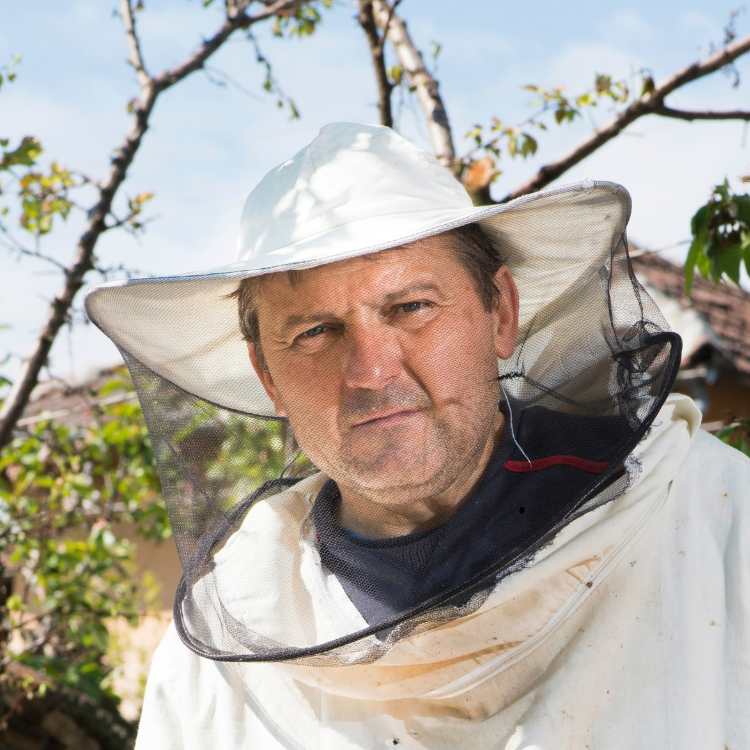Beekeepers often get asked, “do bumblebees sting or bite?” It’s a fair question too. Bumblebees look big and fuzzy and sometimes they can get a little too close for comfort. But there is no need to panic. These pollinators are not out to get you. But make no mistake, they will defend themselves if pushed.
Let’s clear up the confusion and get straight to the facts about how bumblebees protect themselves, how they behave, and what to expect if one sees you as a threat.
Do bumblebees sting or bite?
Let’s start with the very basic question: Do bumblebees sting or bite? They can do both, but stinging is their main defense. Biting is rare and can only be seen happening in some specific cases of interaction with other insects or inside the nest. So, if you are a human and you are outdoors minding your own business, it is the stinger that you should be worried about.
Bumblebee workers and queens are the only ones with stingers. Drones (male bees) do not sting at all.
Why do bumblebees sting?
It’s not for fun. By nature, these fuzzy pollinators are not aggressive. But when they feel threatened, or if you get too close to the nest, they are sure to defend fast. Stings are their last resort.
Here is a quick difference between bumblebees and honeybees' stings. A bumblebee can sting more than once. Honeybees die after stinging once because the barbed stinger gets stuck in the skin. The stingers of the bumblebees are smoother and therefore reusable.
So, do bumblebees sting or bite? If they feel the need to protect themselves or their colony, they will sting. Biting is more of an internal, bee on bee behavior.

What does a bumblebee sting feel like?
It really hurts. That is the plain, hard truth. The sting can be sharp with a burning sensation and often accompanied by mild swelling. A single sting usually will cause redness, swelling, and itching that lasts a few hours to a couple of days. Some folks don’t react much at all. Others? Well, they might swell up fast.
The pain is a consequence of the venom injected via the stinger. This triggers the body’s immune response. If you are allergic, even a single sting can be dangerous. Get medical help immediately in case of an allergic reaction to the bumblebee sting.
How do bumblebees bite?
Alright, back to the original question: do bumblebees sting or bite? Again, yes, but here’s how biting works. Bumblebees have mandibles. These are strong jaws they use to build wax cells, chew pollen and sometimes fend off threats. And these are rarely used on humans. You would have to hold one in your hand or really disturb its nest for a bumblebee to try biting you. And even then, the sting is the preferred weapon.
If a bite happens, you might feel a pinch, but it is not usually painful or venomous. Think of it as more of a warning nip than an actual injury.
When are you most likely to get stung?
Bumblebees mind their own business. But if you stumble too close to their underground nest, or you trap one inside your clothing, they will sting without hesitation. Here are a few key triggers:
- Stepping on a nest hidden in tall grass or under debris.
- Swatting at them as they fly near your face.
- Wearing strong scents that confuse them. Perfume and cologne are great examples.
- Crushing one by accident. Say, leaning on a flower where it is foraging.
Still wondering, do bumblebees sting or bite in daily encounters? Usually, neither. Unless they are provoked, they will usually just fly off.

A bumblebee on a purple flower
What to do if you get stung?
If you are stung by a bumblebee, here’s what to do:
- Leave the area. Other bees might be nearby, and you definitely wouldn’t want to attract more.
- Wash the site with soap and water.
- Apply ice to the skin to reduce swelling.
- You can take antihistamines if you are itchy or swollen.
- Seek medical help if you have trouble breathing, swelling in the face or throat or any signs of an allergic reaction.
What we have learned
Let’s recap the big question: Do bumblebees sting or bite? Yes, and yes. But stinging is usually their go-to defense. Biting is uncommon and generally reserved for hive duties or pest defense inside the nest.
If you treat bumblebees with respect, they will return the favor. Their primary job is to pollinate, feed their young and keep the ecosystems thriving. It is not to attack you on sight. So, the next time you see a bumblebee buzzing by, don’t panic. It is not planning to sting or bite you. It is probably just late for a flower appointment.
Want to learn more about different types of bees, hive structures, or how to build a bee friendly garden? Continue reading other intriguing stories from our full blog here.





